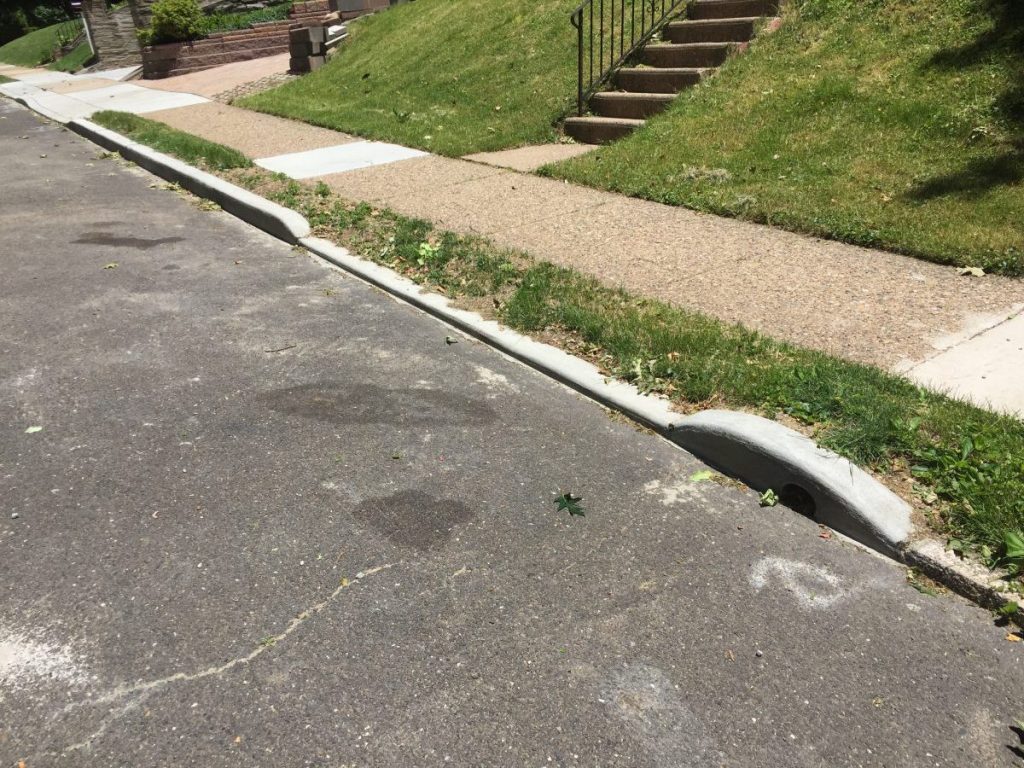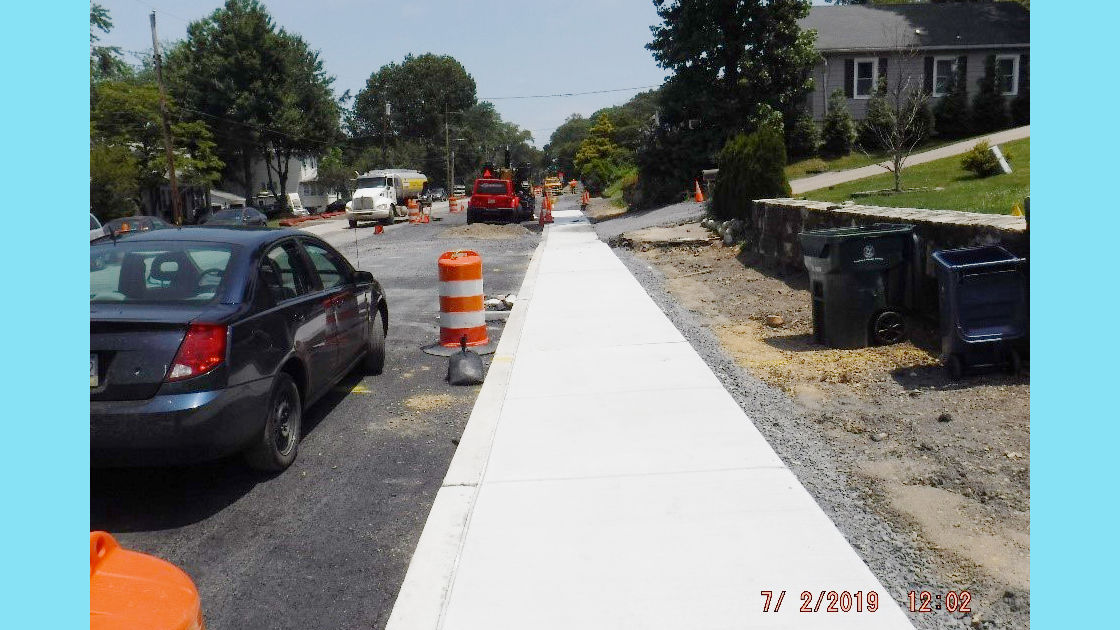
With the work on Tyson Avenue nearing completion after more than 30 years of discussion and planning, residents have expressed some joy over the new sidewalks the project brought them. I’m curious about how many of those residents know about the extra responsibility and obligations their township has foisted upon them.
I love sidewalks. For those of us steeped in the principles of walkable communities, the humble concrete walkway is the symbol of our cause—it protects us from traffic, connects us to neighbors, and proclaims our commitment to a healthier lifestyle. It’s what makes a walkable community walkable.
Unfortunately, residents often fail to understand the obligation that comes with their new walkway, and it has nothing to do with shoveling snow. It can be onerous. Eventually the new sidewalks incur damage, start to crumble, and will no longer meet code. When this happens, Abington can order you to fix it, or else. In Pennsylvania, the law allows this and every municipality does it. Is it right? Is it the best way?
Before you answer, consider these facts. You probably don’t own that sliver of land. Like the road it parallels, the sidewalk likely belongs to the township which makes it community property like the parks or other public facilities.
Jenkintown homeowners know the pain of this burden well. In 2015, the borough’s paving program also prompted an arbitrary mass-inspection of all the sidewalks, that issued dozens of citations requiring homeowners to effect repairs within four months of receipt. We were cited for 40-feet of crumbling curb and 4 sidewalk blocks. We got off relatively easy, but we still faced a $3,600 repair bill.

Elderly residents on fixed income living in older houses with more frontage faced much greater burdens. Some paid upwards of $20,000 to fix walks and curbs. One resident told Council that the work would force him to delay installing new windows in his older house. “I guess my kids will have to sleep with drafty windows for another year,” he told the board.
The mass inspection caused no small amount of chaos in the community. A small army of itinerant contractors swept into the borough fully aware of looming deadlines and presented wildly varying estimates, the lowest of which still doubled the cost of bidding to a single contractor. Some residents paid triple the wholesale rate. The shoddy, uneven results show for itself. Four years later, new sidewalks and curbs have started to crumble and flake.
Towns and cities elsewhere do it differently and often better. In my home state of Massachusetts, the responsibility falls upon public works with funds from property taxes. The city of Ithaca, New York charges homeowners a $75/year surtax for a dedicated fund to repair sidewalks. It’s a single-payer system.
Had Jenkintown bid out a block-by-block rebuild to a single contractor and divvied the bill, affected property owners would still pay less than what they paid for the patchwork they got.
Tyson Ave residents, enjoy the new sidewalks now, but keep a close eye on them. Before it snows, take pictures of your curbs in the event of plow damage. Don’t let cars park on them or drive over your curbs. Every crack and chip you see from this point on is money out of your wallet. A lot of money.

